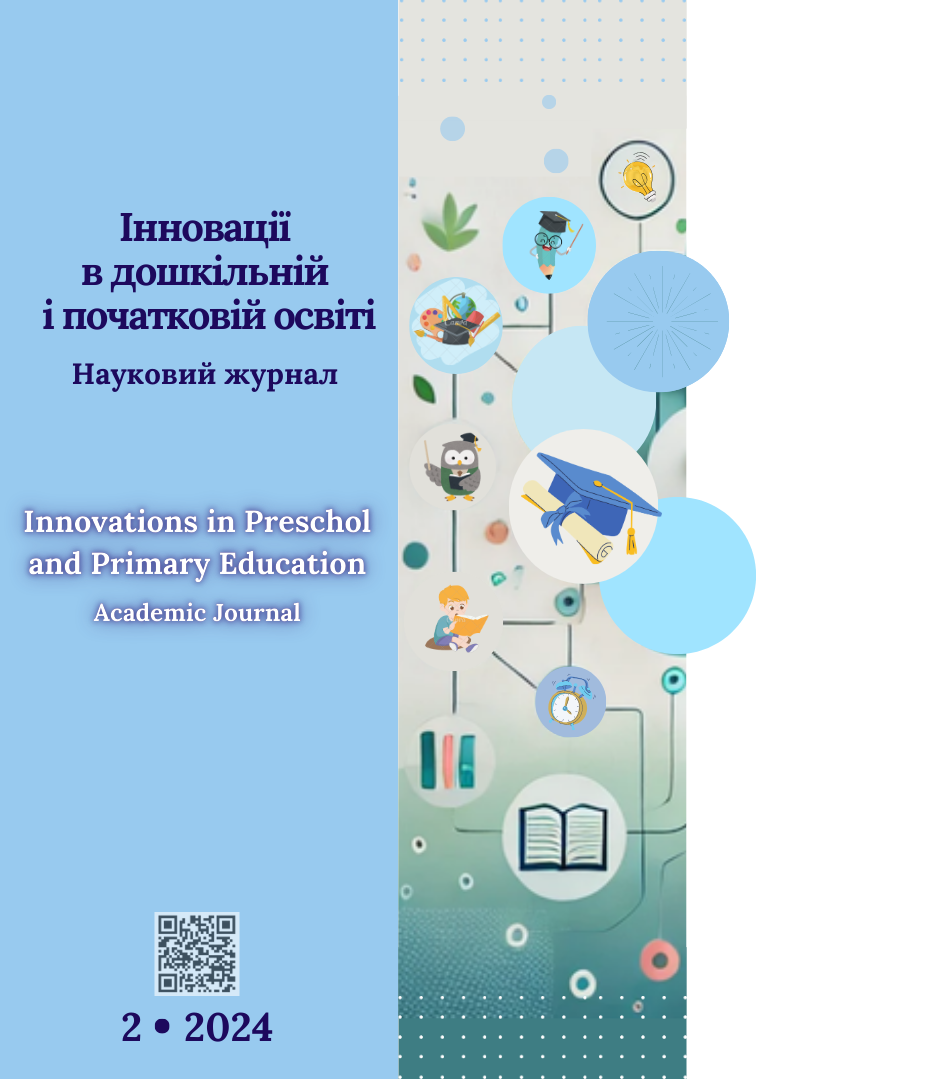Development of multiple intelligences in primary school students bymeans of contextual learning technologies
DOI:
https://doi.org/10.31652/3041-2439-2024-2-7-15Keywords:
multiple intelligences, primary school students, contextual learning, digital educational technologiesAbstract
The article states the interconnection of the sectoral competences of a New Ukrainian School graduate with nine types of multiple intelligences (verbal (linguistic), logical and mathematical, visual, kinesthetic, interpersonal, intrapersonal, musical, naturalistic and existential), describes the didactic potential of the content of educational sectors for their development. It has been established that the technology of contextual learning has ample opportunities for the development of junior schoolchildren's multiple intelligences through the use of subject tasks that are characterised by accessibility, interactivity, informativeness, and take into account personal, procedural and situational aspects of learning. This approach ensures a gradual transition from theoretical learning to practical application of knowledge, which contributes to the implementation of multisensory and activitybased methodological approaches. Based on the analysis of psychological, pedagogical, methodological works of domestic and foreign researchers, synthesis of educational and methodological ideas, the methods and forms of contextual learning that should be used in the process of developing different types of intelligence in primary school students are proposed. These include: role-playing, experiments and research, group projects, as well as the Interactive Maps toolkit from the MozaBook software, etc. The methodological feasibility of using such methods and forms of contextual learning for the development of different types of multiple intelligences in Grade 2 pupils is emphasised: mathematical games and puzzles, solving problems in the form of stories and real-life situations (logical and mathematical); roleplaying games with literary content, creating own mini-stories or poems (verbal and linguistic); projects, experiments and experiments «Not just a drop», «Tornado in a jar», «Enchanted button» (naturalistic); lessonquest «Safety Country» with the creation of a mini-book «Road Safety», group projects (interpersonal); online game «Interland», in particular the level «River of Reality», to master basic network etiquette and safety skills (emotional and personal).
References
Васютіна Т. М., Шолудько Х. О. Теоретико-методичні засади розвитку емоційного інтелекту учнів початкової школи засобами технології контекстного навчання. Наукові записки. Серія: Педагогічні науки. 2024. Вип. 6 С. 8-13.
Вебінар «Робота з mozaBook та mozaWeb!». URL: https://edpro.ua/webinars (дата звернення: 15.08.2024).
Желанова В. В. Контекстне навчання як умова формування соціокультурної компетентності студентів коледжу. Вісник ЛНУ імені Тараса Шевченка. 2018. № 8 (322). С. 100-107.
Лазаренко Т. В., Осьмачко С. А. Використання контекстного навчання в процесі вивчення іноземної мови у ЗВО. Педагогіка формування творчої особистості у вищій і загальноосвітній школах. 2021. № 75, Т. 2. С. 101-106.
Множинний інтелект: як зрозуміти свою дитину. 2023. URL: https://childdevelop.com.ua/ articles/psychology/269/ (дата звернення: 15.08.2024).
Нова українська школа. Концептуальні засади реформування середньої освіти: Міністерство освіти і науки України. URL: https://bit.ly/41vv39L (дата звернення: 15.08.2024).
Остапенко Г. С. Українська мова та читання: підруч. для 2 кл. закл. загал., серед., освіти (у 2-х част.). Ч. 2. Київ: Світич, 2019. 128 с.
Про затвердження Державного стандарту початкової освіти: Постанова Кабінету Міністрів України від 21лютого 2018 р. № 87. URL: https://zakon.rada.gov.ua/laws/show/87- 2018-%D0%BF#n12 (дата звернення: 25.08.2024).
Пужайчереда Л. М., Карнаушенко В. О. Цікаві домашні досліди. Харків: ВГ «Основа», 2021. 80 с.
Типова освітня програма (1-2 клас) / Р. Шиян та ін. URL: https://bit.ly/46LQXYS (дата звернення: 16.08.2024).
Цифрова освіта та навчання від Mozaik. URL: https://bit.ly/42Pbom9 (дата звернення: 15.08.2024).
Юрченко О. 9 типів інтелекту за Говардом Гарднером: який у ваших учнів? 2022. URL: https://bit.ly/41wGspV (дата звернення: 21.08.2024).

